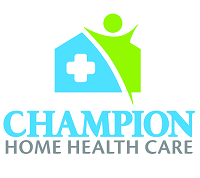Take advantage of tax savings created by home health care medical expenses! The client receiving the care can claim the tax deduction or a family member, such as the spouse, sibling or adult children, can take the deduction instead.
7 – IRS Rules for Deducting Home Health Care Expenses:
1. Medical expenses are deductible after they exceed 7.5% of adjusted gross income.
2. The patient must be unable to perform two or more “activities of daily living”: eating, toileting, transferring, bathing, dressing, and continence.
3. A “Plan of Care” must be devised by the registered nurse representing the Home Health Agency or Nurse Registry, the doctor, or social worker. The Home Health Care Agency or Nurse Registry can assist you with this documentation.
4. In order for a family member to claim the deduction, he or she must provide over half of the patient’s support.
5. If the patient has income (excluding social security) less than the amount of the personal exemption – $2,700 this year – then he or she is your dependent, and you get a personal exemption also. The tax implications of declaring your parents as dependents can be quite substantial, contact a tax advisor to determine if you can take advantage of the rules.
6. Consider making pre-payments for home health care expenses. This is deductible in the year the payment is made. It accelerates the expense and maximizes the tax benefit in the year that it is most advantageous.
7. Always contact a tax advisor prior to developing any plans.
Deducting Premiums Paid On Home Health Care Policies:
For Home Health Care policies bought after 1997 and meeting certain criteria, the premiums are tax deductible as medical expenses up to certain limits and the benefits are tax free. Policies that meet the criteria are called “tax-qualified”. A doctor has to certify that your condition is expected to last at least 90 days. This creates a 90 day out-of-pocket expense period.
Please Submit Comments using the ‘Contact Form’ and Reference this ‘Post’
